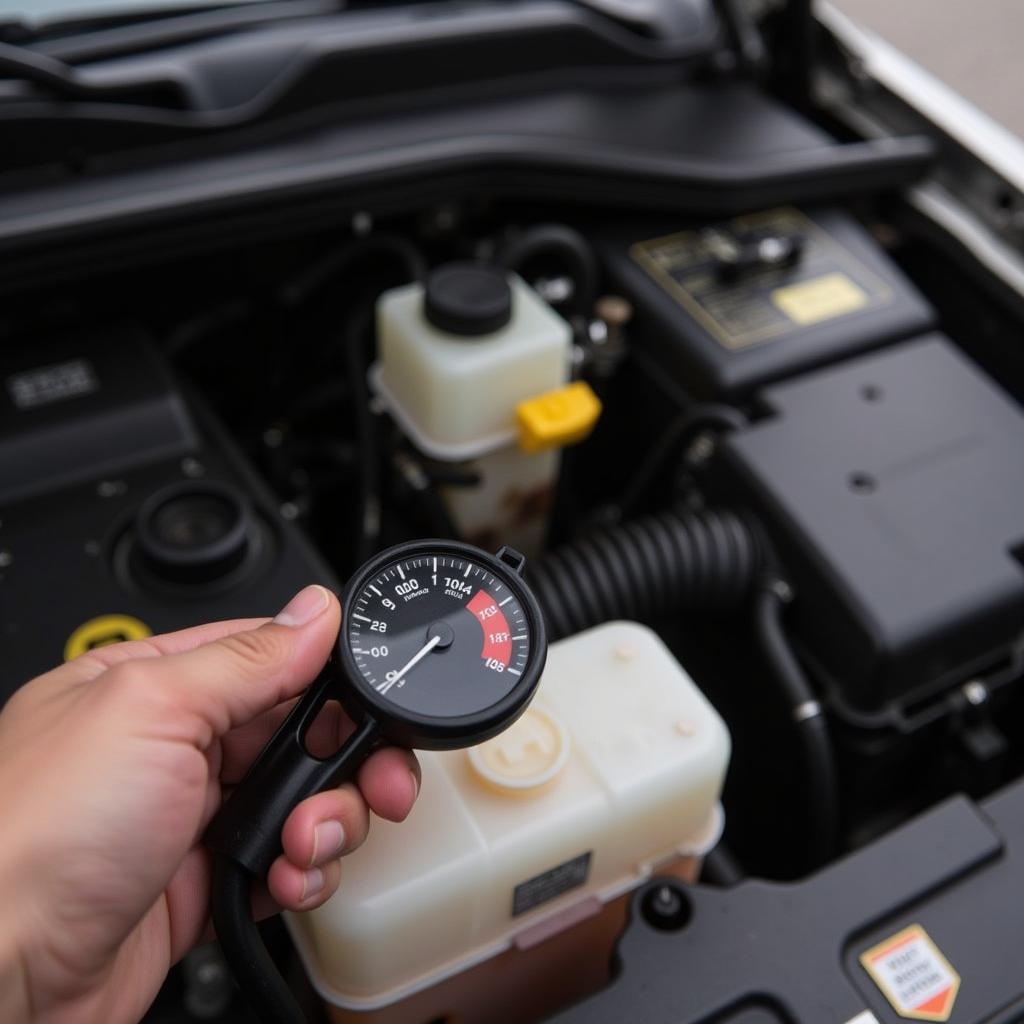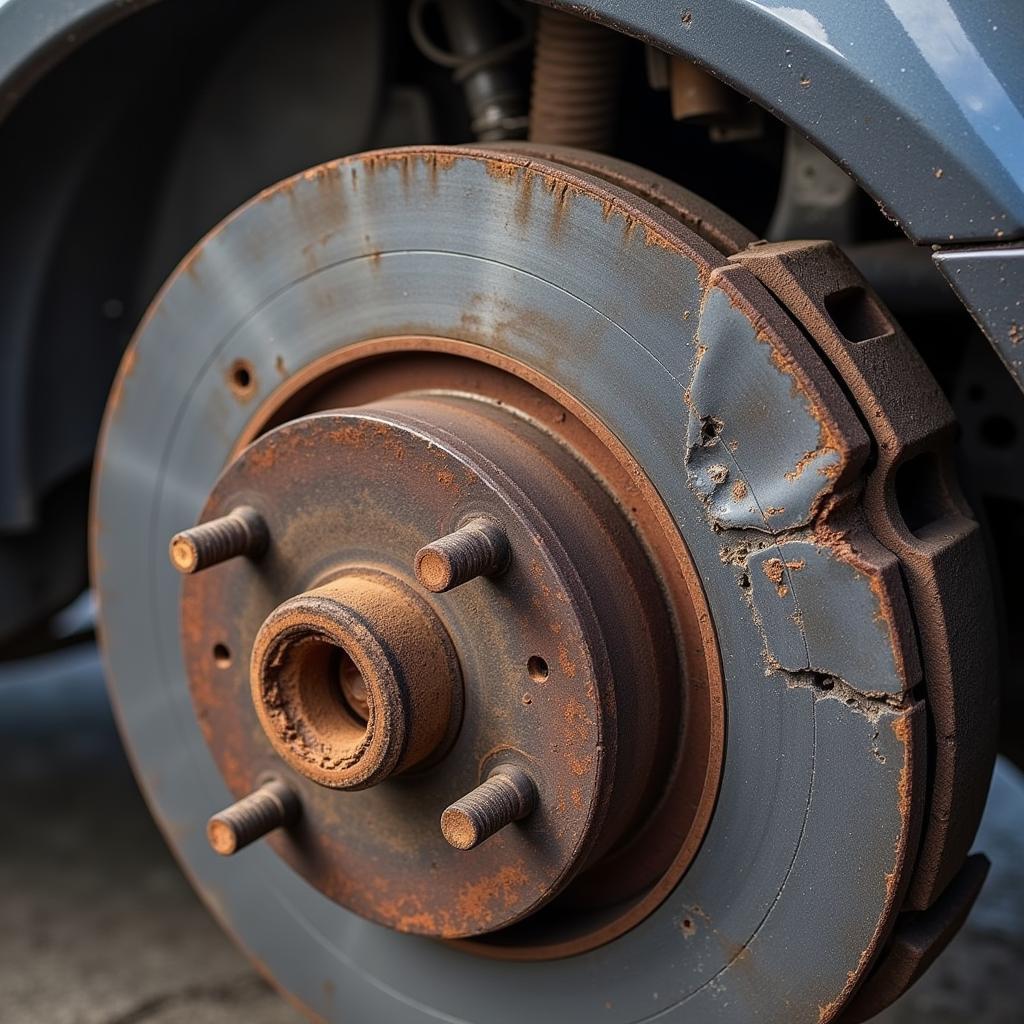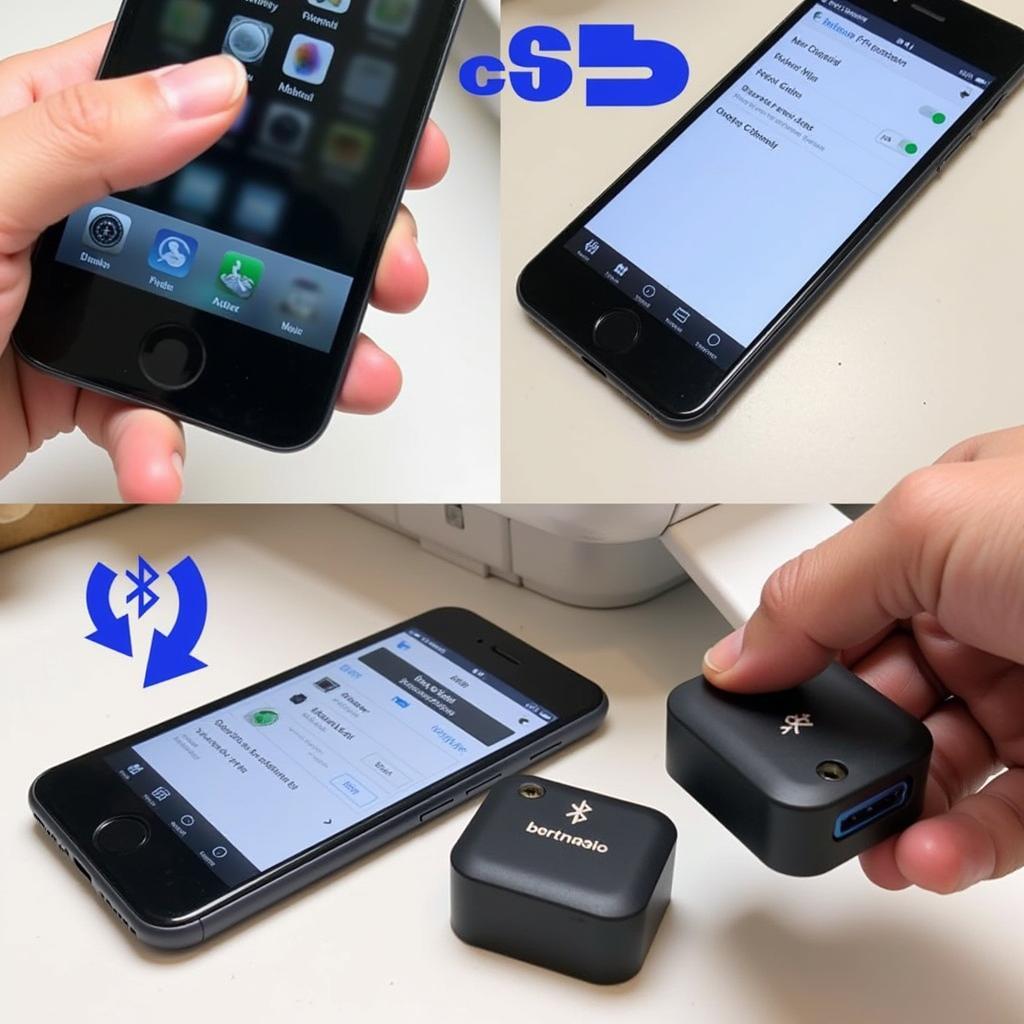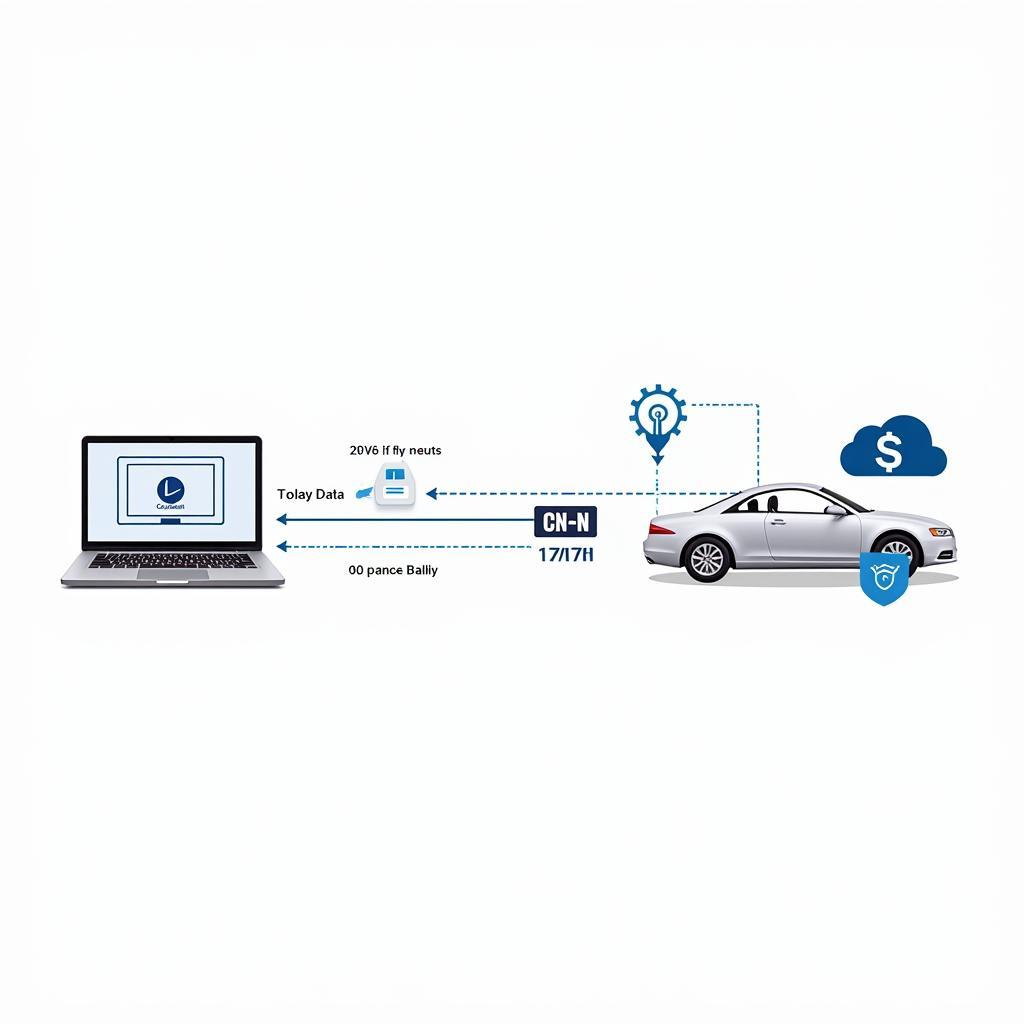The dreaded brake warning light on your Mercedes ML320 dashboard can signal a range of issues from minor to serious. Ignoring this warning light can be dangerous, but don’t panic! Understanding the potential causes and knowing how to troubleshoot them can get you back on the road safely. This guide will explore common reasons for the ML320 brake warning light illuminating and equip you with the knowledge to address them.
Common Causes of an Illuminated Brake Warning Light
Your ML320 is equipped with a sophisticated braking system, and the warning light acts as its primary communication tool. When illuminated, it could indicate:
- Worn Brake Pads: This is the most frequent culprit. Brake pads have wear indicators that trigger the warning light when they reach a certain thinness, signaling the need for replacement.
- Low Brake Fluid Level: Brake fluid transmits the force from your foot on the brake pedal to the brake calipers, activating the pads. A leak in the system can reduce fluid level, compromising braking performance and triggering the warning light.
- Faulty Brake Light Switch: This switch, positioned behind the brake pedal, activates the brake lights when the pedal is pressed. A malfunction can disrupt this signal, often causing the brake warning light to illuminate.
- ABS Issues: The Anti-lock Braking System (ABS) prevents wheel lockup during hard braking. A malfunctioning ABS module, wheel speed sensor, or related component can trigger the warning light.
- Electronic Stability Program (ESP) Malfunction: The ESP works in conjunction with the ABS to maintain vehicle stability. Issues with this system can also lead to a lit brake warning light.
Troubleshooting Your ML320 Brake Warning Light
While consulting a qualified mechanic is always recommended for brake system issues, here are some initial steps you can take:
- Check Your Brake Fluid: Park your vehicle on a level surface and visually inspect the brake fluid reservoir under the hood. If the fluid level is below the “MIN” mark, add the correct DOT 4 brake fluid. Important: Only add fluid if you’re comfortable doing so. If you’re unsure, seek professional help.
- Inspect Your Brake Pads: If you’re comfortable with basic car maintenance, you can visually check the thickness of your brake pads through the spaces between the wheel spokes. If they appear excessively thin, it’s time for a replacement.
- Examine Your Brake Lights: Have someone press the brake pedal while you check if all brake lights (including the high mount light) are functioning correctly. If not, the brake light switch might be the issue.
 Checking Brake Fluid Level
Checking Brake Fluid Level
When to Seek Professional Help
If the initial checks don’t resolve the issue or you’re uncomfortable performing them, it’s crucial to seek professional help. Signs you should contact a mechanic include:
- Warning Light Remains On: If the light stays on after checking fluid and performing basic checks, there’s likely a more complex issue at hand.
- Soft or Spongy Brake Pedal: This feeling indicates potential air in the brake lines or a serious brake fluid leak.
- Unusual Noises When Braking: Grinding, squealing, or clunking sounds while braking can indicate significant brake pad wear or other brake component problems.
- Pulling to One Side When Braking: This points towards uneven brake pad wear or a potential brake caliper issue.
 Inspecting ML320 Brake Pads
Inspecting ML320 Brake Pads
Mercedes ML320 BAS ESP Warning Light Suddenly Brakes
Sometimes, in conjunction with the brake warning light, you might experience the “BAS ESP” warning message illuminated on your dashboard. This indicates a potential issue with your Brake Assist System (BAS) or Electronic Stability Program (ESP). In some cases, the vehicle might even brake suddenly and unexpectedly. This situation necessitates immediate attention from a qualified mechanic, as it signifies a potentially dangerous malfunction within the electronic safety systems.
mercedes ml320 bas esp warning light suddenly brakes
Conclusion
Addressing the ML320 brake warning light promptly is vital for your safety and the longevity of your vehicle. While some causes might be minor, others can signal significant problems requiring professional attention. Regularly inspecting your brake fluid, listening for unusual noises, and monitoring your brake pedal responsiveness can help prevent unexpected issues and ensure safe driving. Remember, when in doubt, consult a trusted mechanic to diagnose and rectify any brake system concerns.



